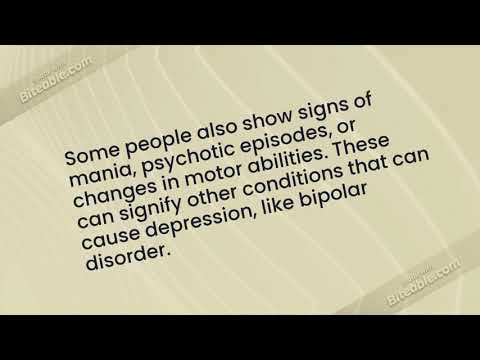hello my friend I’m Roshan. the student of psychology. In this video, we are going to learn How to Get Over Depression. So today are enemy is depression. and we are going to kill depression without any mercy. there is no doubt that our enemy is strong. but not stronger than us. let’s see how to identify Depression.
What is depression?
Depression is a disorder affecting mood and general outlook. A loss of interest in activities or feeling sad and down are symptoms that characterize this condition. Even though most people feel sad or down for brief periods, clinical depression is more than just feeling sad.
Depression is a serious medical condition and people usually aren’t able to just get over a depressive state. Untreated depression can cause lasting issues that include:1. Employment problems 2. strain on relationships 3. drug and alcohol abuse 4. suicidal thoughts or attempts
Many people who receive effective treatment for depression will go on to live healthy and happy lives. For some, depression may be a lifelong challenge that requires treatment on a long-term basis. Talk to your doctor if you think you are suffering from depression or a major depressive disorder. People of any age and life situation can have depression.
What causes depression? Depression isn’t a simple condition with a known cause. Some people are more susceptible to depressive episodes while others are not. It’s important to discuss symptoms with your doctor. There are several possible causes of depression.
Genetic. Depression may be an inherited condition. You may have a higher likelihood of experiencing a depressive disorder at some point in your life if you have a family member with depression. The exact genes involved are not known. It’s believed that many genes may play a factor in causing depression.
Biochemical. Some people have noticeable changes in their brains with depression. Even though this potential cause isn’t understood, it does suggest depression starts with brain function. Some psychiatrists look at brain chemistry with cases of depression. Neurotransmitters in the brain — specifically serotonin, dopamine, or norepinephrine — affect feelings of happiness and pleasure and may be out of balance in people with depression. Antidepressants work to balance these neurotransmitters, mainly serotonin. How and why these neurotransmitters get out of balance and what role they play in depressive states isn’t fully understood.
Hormonal. Changes in hormone production or functioning could lead to the onset of depressive states. Any changes in hormone states — including menopause, childbirth, thyroid problems, or other disorders — could cause depression. With postpartum depression, mothers develop symptoms of depression after giving birth. It’s normal to be emotional because of the changing hormones, but postpartum depression is a serious condition.
Situational. Trauma, a big change, or struggle in life can trigger a case of depression. Losing a loved one, being fired, having financial troubles, or undergoing a serious change can have a big impact on people.
What are the symptoms of depression? While the symptoms of depression can vary depending on the severity, there are some standard symptoms to watch for. Depression not only affects your thought and feelings, but it can also impact how you act, what you say, and your relationships with others.
Common symptoms include sadness. tiredness. trouble focusing or concentrating. unhappiness. anger. irritability. frustration. loss of interest in pleasurable or fun activities. sleep issues (too much or too little). no energy. raving unhealthy foods. anxiety. isolation. restlessness. worrying. trouble thinking clearly or making decisions. poor performance at work or school. dropping out of activities. guilt. suicidal thoughts or tendencies. pain, like. These can signify other conditions that can cause depression, like bipolar disorder
What are the risk factors of depression? Many factors can increase your risk of developing depression at some point in your life. Risk factors include: being a woman (more women are diagnosed with depression than men) having low self-esteem. having blood relatives with depression. being gay, lesbian, bisexual, or transgender. having other mental health disorders, like anxiety or bipolar disorder. abusing drugs or alcohol. having a serious or chronic illness. taking certain medications, like sleeping pills. living in a region of the world that has long winter nights and limited sunlight
How is depression diagnosed? To diagnose depression your doctor will do a full examination and get your medical history. They may refer you to a psychiatrist for a more in-depth evaluation. Since depression can’t be tested by using blood tests, your doctor will ask you questions about your thoughts and feelings. Your doctor will be able to diagnose you based on your symptoms and answers
source
